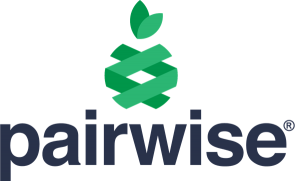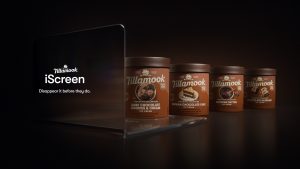 Pairwise, a company pioneering genetics-based innovation in food and agriculture, has developed the world’s first seedless blackberry. Created using the company’s proprietary Fulcrum Platform, a complete suite of novel tools for CRISPR application in plants, this is the first time seedlessness has been achieved in any caneberry.
Pairwise, a company pioneering genetics-based innovation in food and agriculture, has developed the world’s first seedless blackberry. Created using the company’s proprietary Fulcrum Platform, a complete suite of novel tools for CRISPR application in plants, this is the first time seedlessness has been achieved in any caneberry.
“We are thrilled to share this breakthrough achievement from our talented R&D team. Pairwise scientists have used their deep knowledge of plant genetics, broad suite of CRISPR tools, and multiplex editing techniques to eliminate the hard pits in berry fruit, creating soft, small seeds like those found in grapes and watermelon that are commonly labeled as seedless,” said Ryan Bartlett, Pairwise chief technology officer. “The result is the first seedless blackberry in the world. We expect that this trait will not only transform the blackberry market, but it also lays the groundwork for accelerated progress in removing seeds and pits in many other fruits such as cherries.”
Recent innovations in produce have been rapidly adopted due to the significant benefits they provide consumers, such as improved flavor, consistency, and convenience.
“The berry variety we edited is consistently sweet year-round and holds up well during shipment; now, consumers will have the option to choose a nutritious blackberry without seeds that also reliably delivers great flavor and quality,” said Haven Baker, Pairwise co-founder and chief business officer. “Blackberries are a snackable fruit with significant health benefits; however, data indicates that more than 30 percent of berry buyers do not like the seeds, and many more do not even buy the fruit because of the seeds.”
In addition to creating the first seedless caneberry, Pairwise has successfully edited the same variety to eliminate thorns and create a more compact plant that delivers benefits for harvesters, growers and the environment. The thornless and compact traits enable more efficient fruit harvesting and improved productivity and profitability for growers. The new compact trait means the plants are smaller and can be planted at a higher density per acre. Early data from Pairwise-led trials indicate the potential to greatly increase yield per acre while necessitating only a minimal increase in inputs – meaning the water and land used per crate of fruit harvested decreases significantly.
“Our high-density compact and thornless traits contribute to a more sustainable food system. The absence of thorns and reduced height of the compact plants allow berry harvesters to better access the fruit and leave less on the plant, reducing food waste and further improving the growers’ economics. With the precision of CRISPR, we’re able to develop these thornless and compact traits without sacrificing consistency in flavor and quality for consumers,” said Baker. “We’re excited to advance these berries into the next phase of product development, including outdoor field trials, as we work toward scaling up and making them available to the public in a few years.”
“A key challenge in our food system is helping people eat more high-quality, healthy foods. As part of our drive to increase the consumption of fruit and vegetables, we’re working to provide consumers with new, highly nutritious food options with improved flavor and convenience,” said Tom Adams, Pairwise Co-Founder and CEO. “With a deep understanding of the plant genome, an accurate, efficient, and scalable process, and streamlined pathway to commercialization, we are not only creating new products with our proprietary CRISPR technology, we are creating a new era of innovation in agriculture.”
Learn more about Pairwise and its Fulcrum Platform here.
Pairwise is pioneering the application of CRISPR technology in food and agriculture. The company brings together leaders in agriculture, technology, and consumer foods to harness the transformative potential of new genomics technologies to create innovative new products. Pairwise is working to develop new varieties of crops, and to partner with organizations that seek to deliver innovation across the plant-based economy. Backed by industry leading investors Deerfield, Aliment Capital, Leaps by Bayer, and Temasek,
Pairwise raised $90 million in a successful series B funding round in February 2021, bringing total fundraising to $115 million. The company was founded by Chief Executive Officer Tom Adams and Chief Business Officer Haven Baker, with scientific co-founders J. Keith Joung, Lead Translator at Arena BioWorks; David Liu, Director of the Merkin Institute of Transformative Technologies in Healthcare, and Vice-Chair of the Faculty at the Broad Institute of Harvard and MIT; and Feng Zhang, McGovern Investigator and a professor at MIT. For more information, visit Pairwise.com, and learn more about the differentiating Pairwise Fulcrum Platform here.
For more news of interest to the produce industry, subscribe to Gourmet News.











